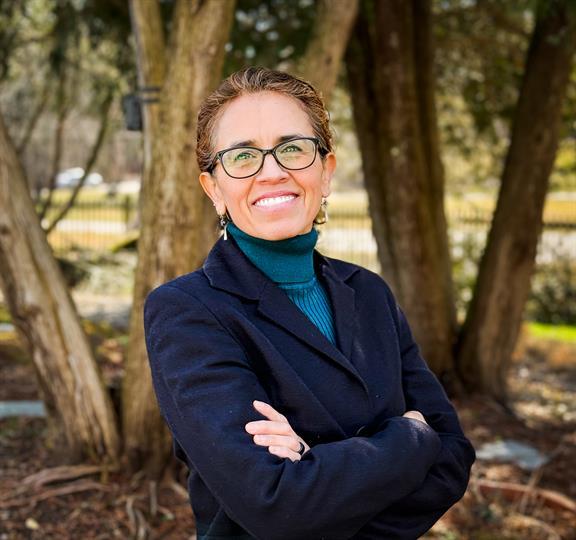-

Hear from Professor Monica Toft
Learn how Professor Monica Toft is shaping the study of global affairs and diplomacy at Fletcher.
Hear from Prof. Toft -

Explore Fletcher academics in action
Fletcher Features offers insights, innovation, stories and expertise by scholars.
Get global insights -
Get application tips right from the source
Learn tips, tricks, and behind-the-scenes insights on applying to Fletcher from our admissions counselors.
Hear from Admissions -

Research that the world is talking about
Stay up to date on the latest research, innovation, and thought leadership from our newsroom.
Stay informed -
Meet Fletcherites and their stories
Get to know our vibrant community through news stories highlighting faculty, students, and alumni.
Meet Fletcherites -

Forge your future after Fletcher
Watch to see how Fletcher prepares global thinkers for success across industries.
See the impact -

Global insights and expertise, on demand.
Need a global affairs expert for a timely and insightful take? Fletcher faculty are available for media inquiries.
Get in Touch
Research/Areas of Interest
Small-scale Fisheries, Regenerative Fishing and Aquaculture, Coastal Marine Environmental Management and Conservation, Blue Justice, Blue Economy, Geospatial Applied Research, Decision-making Tools, Geospatial Technologies, Geographic Information Systems, Participatory and Collaborative Research.
Education
- PhD, University of Arizona, Tucson, United States, 2010
- MS, University of Arizona, Tucson, United States, 2003
- Architecture, Tec de Monterrey, Hermosillo, Mexico, 1998
Biography
Marcia Moreno-Báez is a Research Professor at the Fletcher School of Law and Diplomacy at Tufts University. She teaches courses on geospatial technology, with a focus on the development and application of spatial methods in areas such as territorial and marine planning, and natural resource management. She holds a Ph.D. from the University of Arizona and completed a postdoctoral fellowship at the Scripps Institution of Oceanography. Marcia has over 25 years of experience applying geospatial tools across government, academia, non-governmental organizations, and the private sector.
She is affiliated with the Center for International Environment and Resource Policy (CIERP), the Climate Policy Lab, and the Henry J. Leir Institute for Migration and Human Security, all based at Tufts. She is also co-founder and advisor of dataMares, an initiative that improves access to scientific data and knowledge; a collaborating professor with the NIPPON Foundation's Ocean Nexus program; and a member of the World Economic Forum's Global Future Council on the Regenerative Blue Economy.
Her research focuses on two main areas: understanding the spatial distribution of economic activities, resource extraction, and policies—primarily in coastal and ocean environments—and supporting applied research that integrates social, economic, and environmental goals to promote equity and justice through inclusive, cross-sectoral collaboration.
She is affiliated with the Center for International Environment and Resource Policy (CIERP), the Climate Policy Lab, and the Henry J. Leir Institute for Migration and Human Security, all based at Tufts. She is also co-founder and advisor of dataMares, an initiative that improves access to scientific data and knowledge; a collaborating professor with the NIPPON Foundation's Ocean Nexus program; and a member of the World Economic Forum's Global Future Council on the Regenerative Blue Economy.
Her research focuses on two main areas: understanding the spatial distribution of economic activities, resource extraction, and policies—primarily in coastal and ocean environments—and supporting applied research that integrates social, economic, and environmental goals to promote equity and justice through inclusive, cross-sectoral collaboration.
Selected Publications
Cisneros-Montemayor, A. M., Moreno-Báez, M., Reygondeau, G., Cheung, W. W. L., Crosman, K. M., González-Espinosa, P. C., . . . Ota, Y. (2021). Enabling conditions for an equitable and sustainable blue economy. Nature, 591(7850), 396-401. doi:10.1038/s41586-021-03327-3
Cisneros-Montemayor, A. M., Moreno-Báez, M., Voyer, M., Allison, E. H., Cheung, W. W. L., Hessing-Lewis, M., . . . Ota, Y. (2019). Social equity and benefits as the nexus of a transformative Blue Economy: A sectoral review of implications. Marine Policy, 109. doi:10.1016/j.marpol.2019.103702


